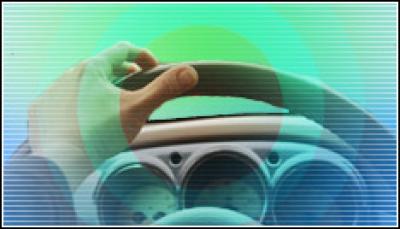Talking Cars Take A Trip In Amsterdam

Smart vehicle projects funded by the European Commission have been undergoing tests in the Dutch city
On any other day reports of “talking cars” in Amsterdam would be put down to too much time spent in the city’s coffee shops, but this week the Dutch city has seen trials of vehicles which can communicate with each other and traffic systems.
Details were released this week of the trial on Wednesday of smart vehicles, funded by the European Commission to develop new ways to manage traffic and cut carbon emissions.
The smart vehicles were tested on the roads around Amsterdam Airport to see how so-called vehicle to vehicle (V2V) and vehicle-to-infrastructure (V2I) could help improve the flow of traffic on Europe’s roads.
The technology works by augmenting the driver’s view of the road as the vehicle automatically exchanges information with other cars as well as traffic signs, lights and other road management systems. For example, a crashed car hidden around a bend would automatically notify other vehicles of its whereabouts, the EC stated.
Part of the Cooperative Mobility Showcase 2010 conference held in the Dutch City this week, the smart car technology has been developed by three separate projects – Cooperartive Systems for Intelligent Road Safety (Coopers), Cooperative Vehicle-Infrastructure Systems (CIVIS) and Safespot.
“Cooperative systems and services like those in our ‘talking’ cars stand to bring real added value for Europe’s drivers. They can help to promote safe and smart mobility in Europe, leading to few fatalities and injuries and a lower CO2 footprint,” said EU Digital Agenda commissioner Neelie Kroes.
 As well as the environmental benefits, Kroes said the projects were a good example of the kinds of investment the European authority should be backing to combat the recession. “Such projects stimulate the active involvement of business and contribute to meeting the Europe 2020 Strategy’s objective of smart growth based on knowledge and innovation,” she said.
As well as the environmental benefits, Kroes said the projects were a good example of the kinds of investment the European authority should be backing to combat the recession. “Such projects stimulate the active involvement of business and contribute to meeting the Europe 2020 Strategy’s objective of smart growth based on knowledge and innovation,” she said.
However, smarter vehicles could raise the issue of consumer privacy. Last year, the European Data Protection Supervisor warned that diverse data protection rules across Europe could introduce problems when it comes to regulating the information associated with so-called intelligent transport systems (ITS).
The EC stated that a set of standards for V2V and V2I technology will be developed by the European Standards Organisations by 2013. Car makers may also begin to include the technology in their vehicles by 2015.
Late last year, Cisco announced that it was working with city authorities in Amsterdam to create an online map of carbon emissions which residents can use to try and reduce their own green-house gas footprints.